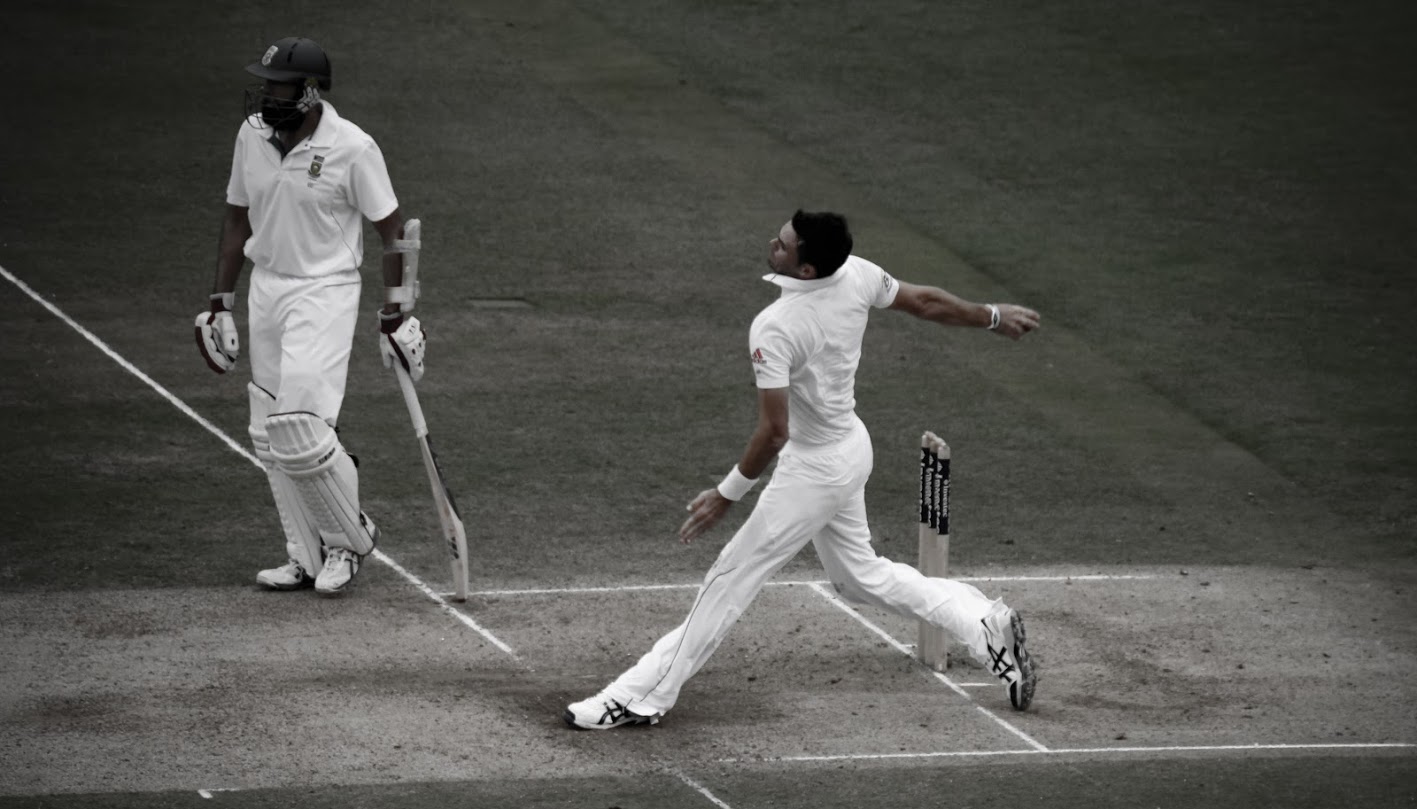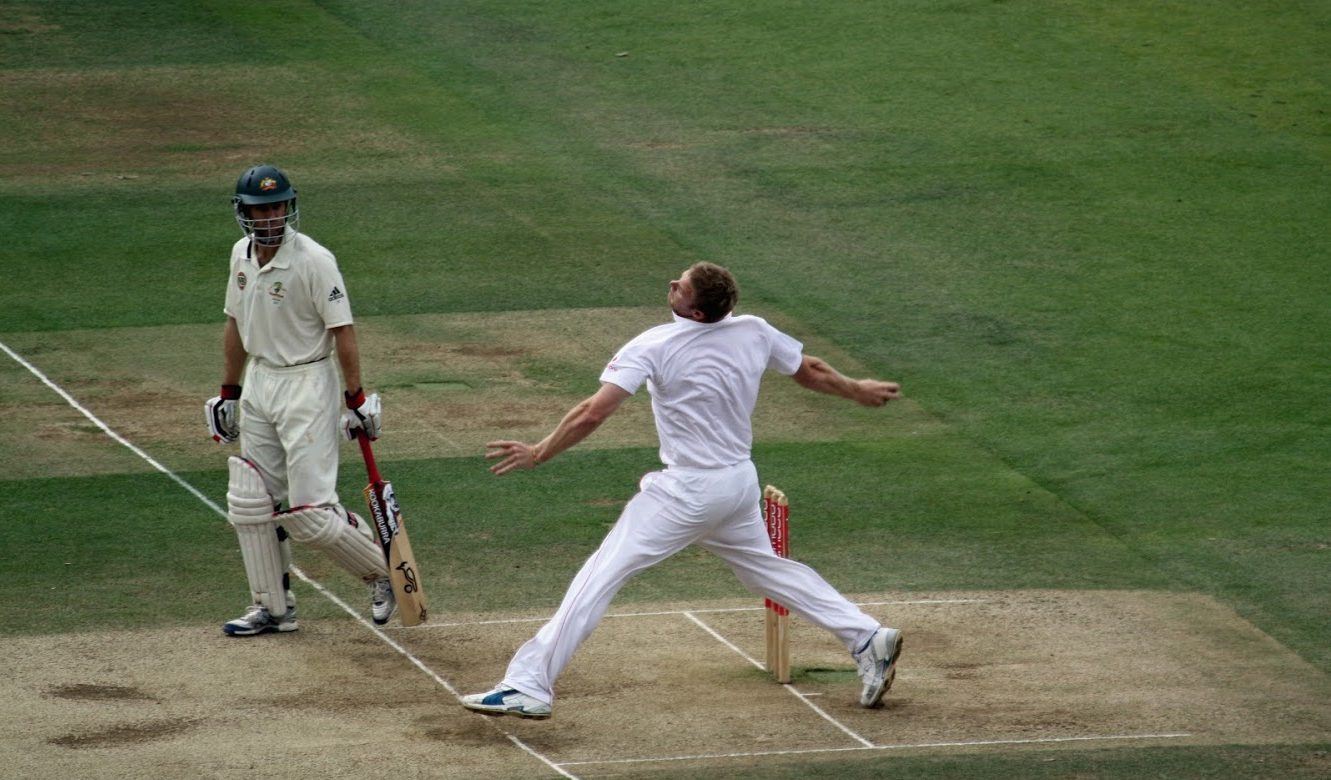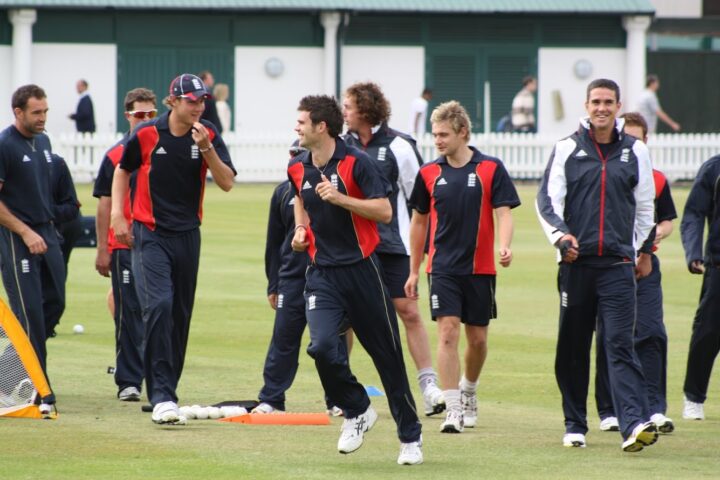Today our Aussie friend Paul Potter looks back on some classic Ashes moments from an Australian perspective. It’s good to remember that we’ve caused the old enemy some pain over the years in the test arena. It hasn’t always been one-way traffic! Enjoy folks. This is part one. The second part will be published next week …
It was the first ball of the first Test match, but it was only years later that I recognised the deeper significance of Bill Lawry’s commentary when Steve Harmison bowled that famous wide in 2006. Fans from England and Wales had to pay to see the best players from England and Wales. And it was the first time that they had faced their oldest Test rivals since the erection of the television paywall after 2005. Indeed, I had no reason to notice. I was eleven years old. More importantly, I was an Aussie. Provided they were playing Australia, I could have all the England I could eat. For free.
Andrew Strauss should have been the captain of that team. He was next time. Two series against the West Indies had brought his team right back where they started – holding the Wisden Trophy, but with no right to any feeling of great confidence. However, England were on an upwards trajectory at last and over the next few years they made Australia sweat quite a few times. Bloody poms.
Cardiff 2009
Any residual laughter an Englishman had towards Australia was constrained by Australia’s success in South Africa. They were seemingly building a new Test team, with exciting players like Phillip Hughes, Marcus North, Mitchell Johnson and Peter Siddle complementing more experienced players like Ricky Ponting and Stuart Clark or, in the case of the latter, replacing them. And they only needed a draw to leave England and Wales with the Ashes.
Come day five at Cardiff, it seemed a distinct possibility. Unable to find a batsman who could score a century or a bowler who could take five wickets during the first four days, they were soon relying on Collingwood to save them on the last. The living statue who wanted to redeem the whispers of Adelaide, both from his own voice and that of the opposition’s.
But Colly needed a partner. Andrew Flintoff fell to one of Mitchell Johnson’s straighter balls of the day. Stuart Broad fell to a Nathan Hauritz skidder. Graeme Swann, one of two English slow bowlers who had been thoroughly out-bowled by the Aussie spinner, shed his usual attacking instincts right up to the cusp of the last drinks break with an attempted pull shot off Ben Hilfenhaus. England looked dead and buried.
James Anderson came out to the crease – the guy Glenn McGrath had hit on the right pad for fun at Adelaide. But McGrath wasn’t here. Johnson was, and he wasn’t threatening the stumps anywhere near as much. Ponting eventually took him off, and there was a sense that England might just get away with this. After all, there was no Shane Warne to turn to, and Collingwood was looking set.
My hopes were lifted when Siddle picked him up in the first over of his new spell. A shattered Collingwood eventually dragged himself from the crease. England were now as far away from safety as they had been all day – more than ten overs left, and only Monty to come in.
Someone would get a wicket, surely? Siddle’ll finish it with two wickets in an over, the new Merv Hughes to destroy England’s tail. No? Oh well, Hauritz’ll do it this over. Still no joy. Then Siddle had a full over at Panesar. Or so I thought. Monty pinched a single and Jimmy survived the rest.
So would Hauritz finish it in the most poetic way? Nup, he was turning it too far and past the outside edge. So much for being a straight breaker. Ok, Siddle to Anderson. Shit, how the hell did Haddin take that?! Four! Two overs gone! Another four! Oh, bad luck, Nathan. What an over. Good grief, Peter! I didn’t need the television to hear that appeal – and I’m in Australia.
Now it was time for Hilfenhaus to have a crack. He’d been good today. But what’s this? Marcus North is coming on to bowl?! What the hell, Ricky? If your best off spinner can’t do the job, what makes you think your part-timer can?
Hauritz is still bowling well but he’s tiring. So it’s up to North again. Another over without success. Come on, Nathan. One ball left. You or no one now. Or maybe not – Monty, what the hell are you doing?! You better dive! Attaboy.
Match drawn. Sad face.
****
The Oval 2009
Andrew Flintoff was the man that Duncan Fletcher had picked as captain over Strauss in 2006. The main man of ’05 suffocated under the weight of the captaincy, but it didn’t entirely take the oxygen out of his cricket. Sans captaincy, he made it to the ’09 Ashes. It wasn’t long after Cardiff’s conclusion that he announced his retirement. This would be it.
He began his farewell tour running down a hill, much in the same way as the balls that dismissed Hauritz and Siddle in his five-wicket haul that finished the match as a contest. But then something happened. He was ineffective with the ball at Edgbaston and an absentee at Headingley. This wasn’t going to be a Freddie series. And after Headingley, England was begging for Freddie.
What they received was Stuart Broad in full flight. Swann as well, but Broad was the one who supplied the pure fast bowler’s spell. Having slowly improved throughout the series, it was in this match that he announced himself as a Test bowler. Lauded by Vaughan for his ability to bowl smart, it was the first spell in which it looked like he was bowling by smell alone, living for the scent of the stumps. He dismissed Watson, Ponting, Hussey, Clarke and Haddin. Flintoff only dismissed Hilfenhaus.
But there was Flintoff-induced drama yet to come. Ricky Ponting was still in his prime. And he was the one batsman England feared. Hey hey Ricky, whatcha gonna do?
Watch the ball.
Ponting was our rock. Hughes was the flying colt, Watson his surprisingly capable replacement, Hussey had experience in English conditions and had dominated in 06-07, Clarke was in terrific form, ditto North and Haddin, but Ponting was the biggest link to that great Australian team. The team that was never beaten until they were beaten. If they needed to break a record to win, they could break a record to win. Even the largest chase in Test history.
England knew it was possible. It was written on the faces of the English players as their play grew increasingly ragged, expressed in growing expressions of dread by English fans, and verbalised by English commentators. Ponting was getting closer to saving his record in England as captain, Hussey to saving his Test career as a whole. Yet if England were scared, there was one person that Australia had to fear: Flintoff.
It was inconceivable that he would not have some role left to play. Ponting, in combination with Katich, had ridden it out at Cardiff. Katich was already gone; Ponting had another capable and determined ally in Hussey. They would have to repeat that partnership and then some.
A plan which went out the window when Flintoff threw Ponting’s stumps down. Flintoff went into that famous pose one last time. Truly, it never fitted a man more than him.
That moment also served as the ’05 curtain call. Not all members of that team were gone with his retirement, but the last of those who had played a significant percentage of their careers before that year were Flintoff and Harmison. Simon Jones never even made it the end of that magical series. Marcus Trescothick couldn’t handle international cricket on the road by the return Ashes series. Geraint Jones and Ashley Giles were dropped forever in the middle of said series. Matthew Hoggard never made it to the ’06 team’s redemption. Michael Vaughan retired in 2009, but his last Ashes Test was in ’05.
That time was gone now.
To be continued …
Paul Potter









I know as a Warwickshire man I’m biased but hopefully there’ll be room to give Ian Bell a mention in part 2. He seems to have become the forgotten man of English cricket when retrospectives are written. He was widely considered England’s best batsman for a few years in the naughties, so deserves a mention.
It is literally in the first paragraph of part 2.